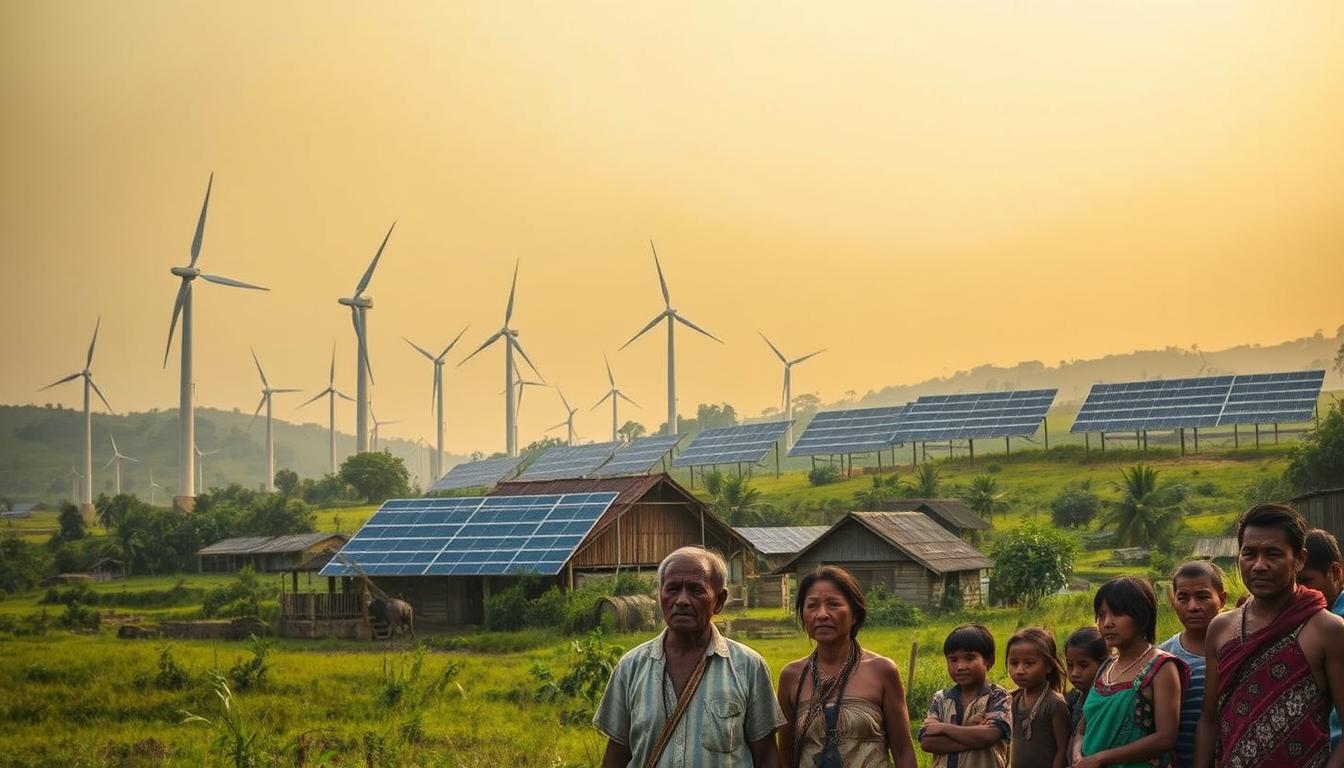This notion of Green Colonialism might appear to be paradoxical. And what about sustainability is it about preserving the earth? Nevertheless, sustainability efforts that fail to take into consideration the rights and knowledge of the native people can reinforce historical injustice.
The problem is multifaceted and the influence on the Indigenous Communities can be strong. Sustainability should be based on inclusion and the indigenous cultures and rights should be respected.
Key Takeaways:
- Green Colonialism is a concept that talks of the harmfulness of sustainability efforts on the indigenous community.
- The practices of sustainable inclusivity are essential to prevent continuing historical injustices.
- The true sustainability requires respect of the indigenous cultures and rights.
- The issue of sustainability programs should remember about the indigenous peoples.
- There should be a subtle treatment between the chances of protecting the environment and the rights of the indigenous people.
The Darker side of Sustainability Efforts:
Green Colonialism is the imposition of sustainability measures on the indigenous people against their will. When the rights and interests of the indigenous people are not considered in the conservation or sustainability programs of the environment, this phenomenon arises and it tends to maintain the contexts of exploitation and marginalization that have been practiced historically.
Complex power relations form the core of Green Colonialism. External parties, including the government, non-governmental organizations, or companies, are usually more influential to the formulation and execution of the sustainability programs. This may result in the fact that the needs, views and traditional knowledge of the indigenous communities are not considered.
The outcomes of this kind of initiatives can be dreadful. Some common issues include:
- The eviction of the native populations to give way to conservation projects.
- The ignorance of the native rights and interests to benefit foreign economic or environmental interests.
- Enforcement of imported solutions that cannot explain local situations and customs.
To alleviate such problems, it is imperative to note that Indigenous Rights are essential in development and implementation of sustainability programs. This is not only the consultation with the indigenous communities, but also making sure that they become dominant in the decision-making processes.
Through the awareness of the power relationships involved and the historical wrongdoings of the indigenous people, we will be able to contribute to more sustainable and fair sustainability projects that do not ignore rights and interests of the stakeholders.
Case Studies: Case Studies: When Green Projects Go Wrong:
The dark side of conservation and renewable energy projects has had an impact on the indigenous people of the world. Conservation in East Africa has resulted in conservation evictions, where the local people are displaced violently in the name of wildlife protection.
As an example, the Maasai people in Tanzania have been displaced because of the establishment of wildlife reserves. In the same manner, renewable energy projects on the Native American territories have been put in place without due consultation and sensitivity towards the rights of the communities and their interests.
Carbon offset programs have emerged in the Amazon region, leading to the concern of commodification of nature and displacement of indigenous people. Though these programs target the need to cut down the volume of carbon emission, they tend to overruling the right of indigenous communities to their lands.
| Project Type | Location | Impact on Indigenous Communities |
| Conservation Efforts | East Africa | Displacement and loss of ancestral lands |
| Renewable Energy Projects | Native American Lands | Lack of consultation and disregard for community rights |
| Carbon Offset Programs | Amazon Region | Commodification of nature and displacement |
These case studies reveal the hectic and difficult issues in the process of balancing environmental sustainability with the rights and interests of indigenous communities. More embracing and fair means should be embraced in green projects so that they are beneficial to the environment as well as the people within them.
Conclusion: Towards Indigenous-Led Sustainability:
Tracing the path of the tricky process of sustainability, it becomes evident that certain actions have continued to recreate Green Colonialism, which is not benefiting the indigenous people, but rather, weakening them.
In order to prevent this, we need to focus on Indigenous-Led Sustainability because we need to acknowledge the rights and understanding of indigenous people to influence Sustainability Solutions that are just and productive.
This can make us work towards a more inclusive and sustainable future by enabling indigenous people to spearhead sustainability projects.
We should encourage and support indigenous-led activities and create a world in which Sustainability Solutions are a blessing to those and the environment.
FAQ:
What is Green Colonialism?
Green Colonialism can be defined as the act of imposing environmental conservation or environmental sustainability standards on the people without their approval and, as a result, it may continue the historical exploitation and marginalization of the local communities.
What detrimental role does sustainability play against the indigenous communities?
Sustainable programs can be destructive to the indigenous people when they ignore the rights and knowledge of the people, which continue to promote historical injustices and marginalization.
What are few instances of going wrong green projects?
Those would be conservation initiatives in East Africa that have caused the displacement of local communities on their ancestral territory, renewable energy initiatives on Native American territory that have not been pre-consulted, and carbon offset initiatives in the Amazon that have led to the commercialization of nature and the dispossession of indigenous peoples.
What does indigenous led sustainability mean?
Indigenous-led sustainability entails enabling indigenous communities to take the lead and influence sustainability initiatives, acknowledging their rights and expertise, and seek more just and powerful sustainability answers.
What is the significance of the priority of indigenous rights in any sustainability efforts?
The protection of indigenous rights should be a priority in any sustainability effort to design newer and better solutions that address the cultures and rights of the indigenous people, eventually resulting in a more sustainable future.



